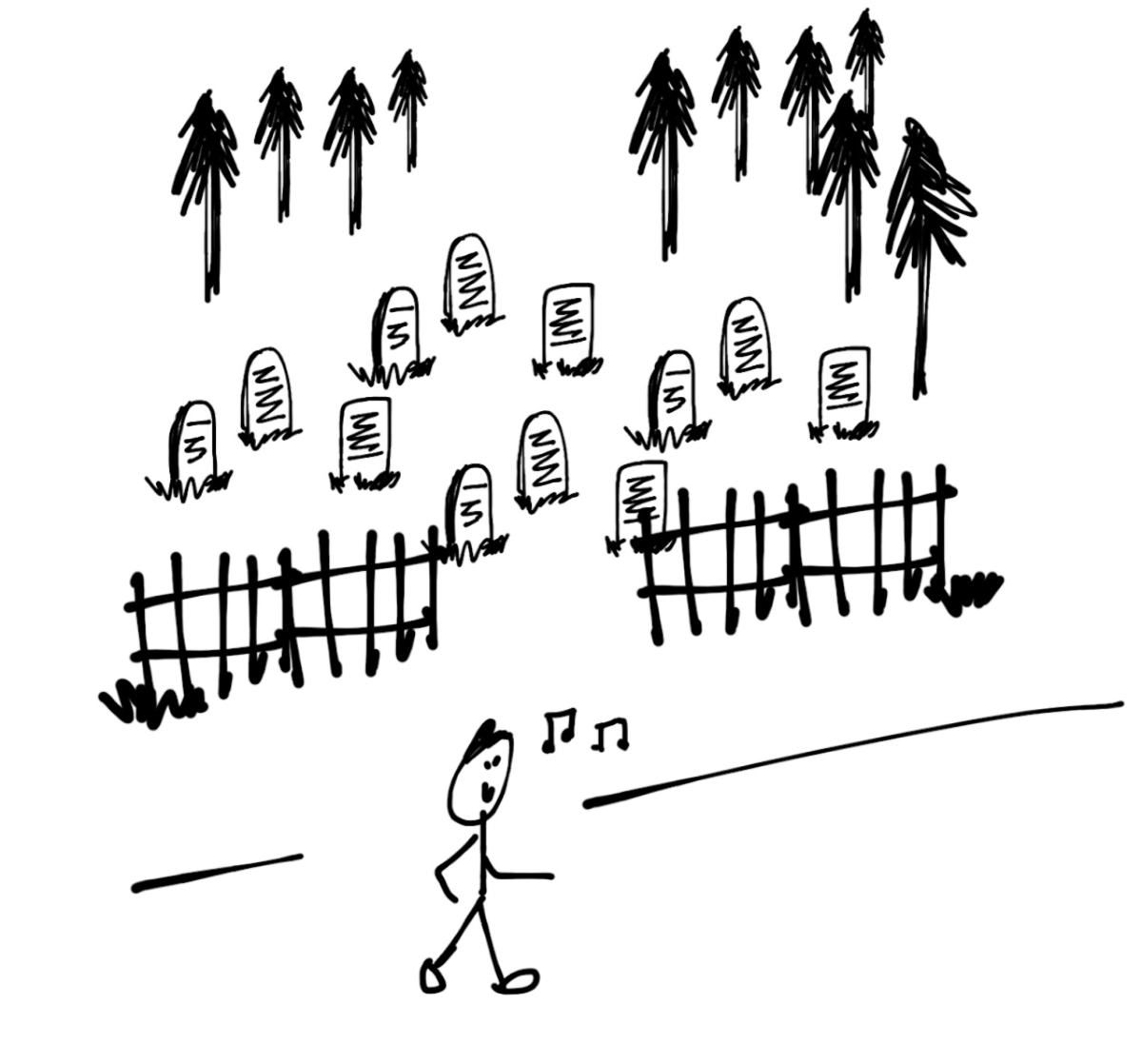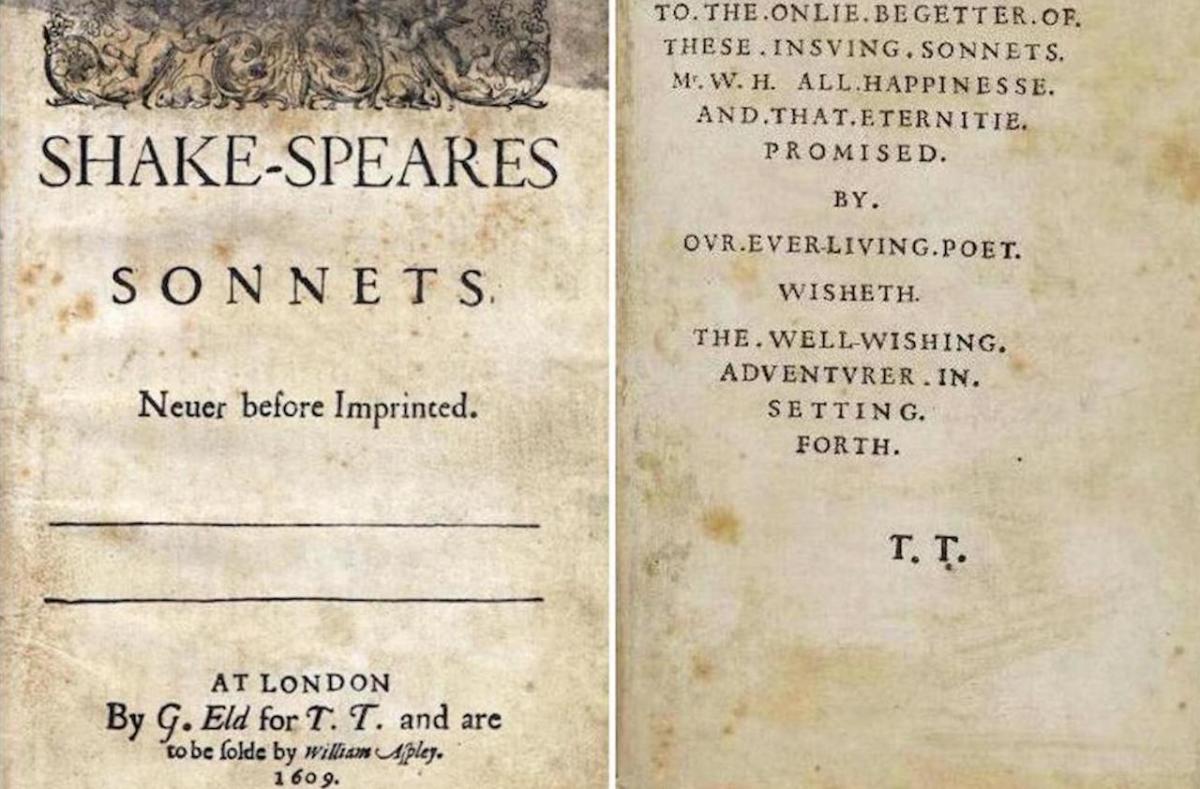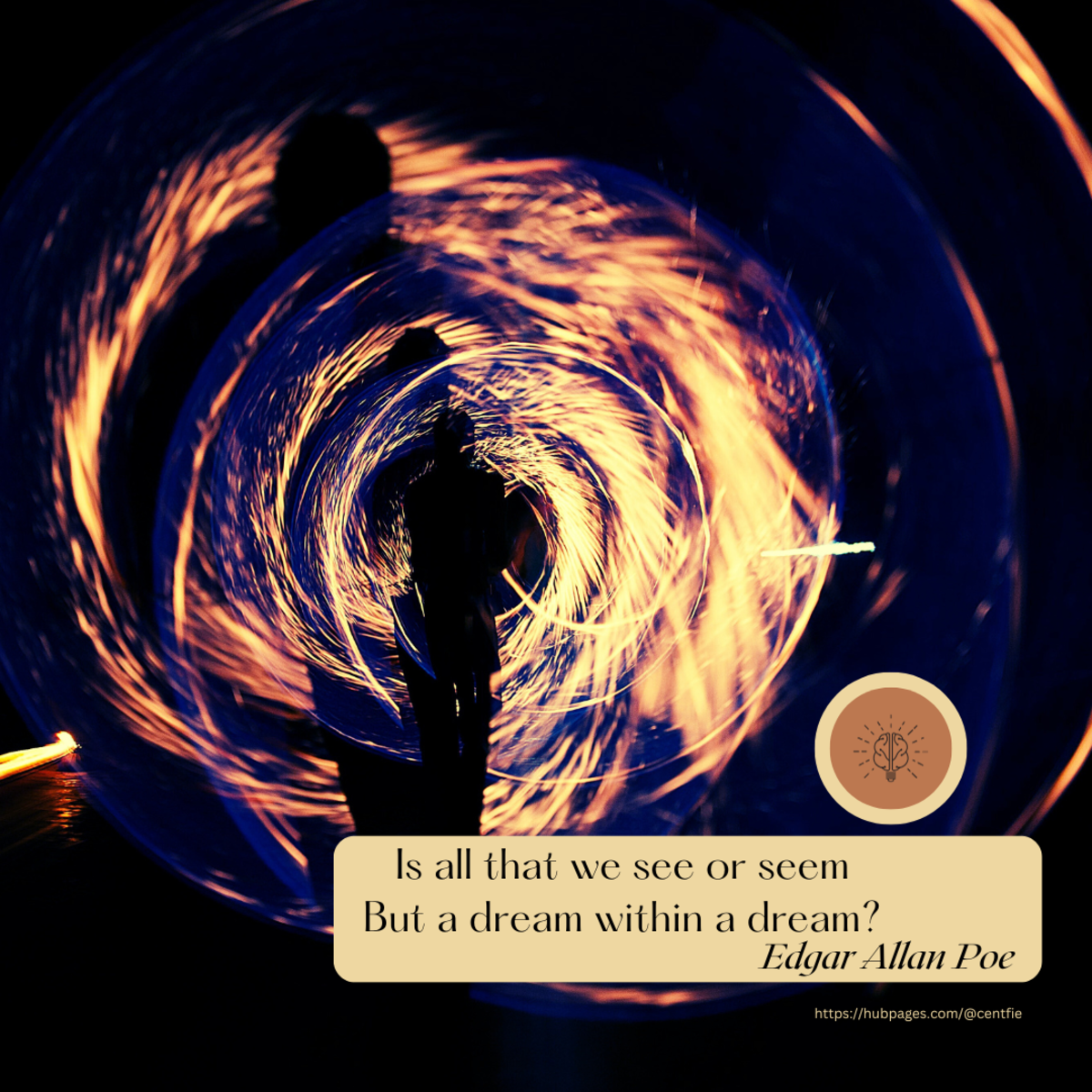- HubPages»
- Books, Literature, and Writing»
- Commercial & Creative Writing»
- Creative Writing
Original Short Fiction: Graveyard Whistler Modernizes the Shakespeare Sonnets

Fiction Alert!
This story is fiction.
Except for the Shakespeare writer,
it does not depict any real person or actual event.
Howdy, I'm back!
You probably remember that I became conflicted about which career path to take, so now that I know I do not want to teach, but I still love researching and writing, I did two things: I started a small law firm, and I started a project involving the creative writing of poetry.
My day job as a lawyer (you may also remember I double majored in lit and law) is pretty simple legal stuff that doesn't require a lot of time and effort as I mostly handle contracts and such. So my evenings and weekends are free to pursue creative writing projects. My latest is modernizing the Shakespeare 154-sonnet sequence.
Here is my first batch: the first 10 sonnets in "The Marriage Sonnets," wherein the speaker is trying to convince a young fellow to marry and spring off lovely children to protect the next generation against ugliness and such.
Modern American English Sonnet 1: "Yo, We Want More of That Dope Vibe"
The first sonnet is, in fact, so modern, that you might note a kind of hip-hop flavor.
Yo, from the flyest we want more to pop,
So beauty’s glow don’t ever fade or stop.
When OG’s time comes, and they gotta dip,
Their lil’ heir keeps the legacy legit.
But you, stuck starin’ at your own fresh glow,
Burnin’ your spark with that self-obsessed show.
You starve the squad where riches should be stacked,
Your own worst hater, that’s a cold hard fact.
You’re the world’s flex, the illest springtime vibe,
The only hype that makes the season thrive.
But you hide your sauce, let your blessings rot,
Young stingy fool, wastin’ all that you got.
Yo, show the world love, don’t hog all the glee,
Or you’ll rob what’s owed, by death and your greed.
In case you don't remember the first of the sequence, since it's hardly ever anthologized, here it is below so you can make out a comparison:
Shakespeare Sonnet 1: "From fairest creatures we desire increase"
From fairest creatures we desire increase
That thereby beauty’s rose might never die,
But as the riper should by time decease,
His tender heir might bear his memory:
But thou contracted to thine own bright eyes,
Feed’st thy light’s flame with self-substantial fuel,
Making a famine where abundance lies,
Thyself thy foe, to thy sweet self too cruel.
Thou that art now the world’s fresh ornament
And only herald to the gaudy spring,
Within thine own bud buriest thy content,
And, tender churl, mak’st waste in niggarding.
Pity the world, or else this glutton be,
To eat the world’s due, by the grave and thee.
If you would like to know more about the Shakespeare sonnet itself, there's a pretty thorough elucidation at "Shakespeare Sonnet 1: 'From fairest creatures we desire increase'. "
Modern American English Sonnet 2: "When You’re Forty and Time’s Left Its Mark"
On the second sonnet, I kept its tone to a simple American Modern English.
When forty years have carved lines on your face,
And etched deep grooves where your charm used to shine,
The youthful glow that everyone’s drawn to now
Will fade to nothing, just a worthless vine.
When people ask where all your beauty went,
Where all the spark of your wild, vibrant days,
To point to your own tired, sunken eyes
Would be a shameful cop-out, empty praise.
Your beauty’s worth deserves so much more hype,
If you could say, “My kid carries my flame,
They’ll hold my place and justify my time,”
Showing your spark lives on through their own fame.
This way, you’re renewed when you’re feeling old,
Your legacy’s warm when your heart feels cold.
To read the Shakespeare original, plus a commentary thereon, please visit "Shakespeare Sonnet 2 'When forty winters shall besiege thy brow'."
Eight More Modernizations without Commentary
All of the following are modernizations of the Shakespeare sonnets. If you would like to visit the original, you can find them on many sites over the net. Happy Hunting! Enjoy!
Comments and questions are welcome if asked in a polite, sincere tone. If you can't do that and feel you must be nasty, just go away.
Modern American English Sonnet 3: "Look in the Mirror and Pass It On"
Original First Line/Title:"Look in thy glass and tell the face thou viewest"
Check your reflection and tell that face you see,
Now is the time to make another like you.
If you do not keep that fresh vibe going strong,
You are robbing the world and a mom’s joy too.
Where is the woman so perfect her untouched heart
Would turn down the chance to build a life with you?
Or what guy so obsessed with his own charm
He would bury his legacy, let his line die too?
You are your mom’s mirror; in you, she sees
The bright, sweet spring of her younger days.
So you, through your kids, despite aging’s toll,
Will see this golden moment in their ways.
But if you live on with no one to recall,
Die alone, and your image fades for all.
Modern American English Sonnet 4: "Why Waste Your Charm on Yourself?"
Original: "Unthrifty loveliness, why dost thou spend"
Gorgeous but selfish, why do you squander
Your beauty’s gifts just on your own reflection?
Nature does not give; she loans with a catch,
And she is generous to those who share freely.
So, stunning stingy, why misuse the wealth
Of blessings you were given to pass on?
Useless hoarder, why cling to such riches,
Yet still come up empty, unable to thrive?
By keeping all your charm to yourself alone,
You are cheating yourself out of your own sweetness.
When nature calls you to leave this world behind,
What decent legacy can you even show?
Your untouched beauty will die with you, gone,
But shared, it lives on in those you leave.
Modern American English Sonnet 5: "The hours that gently shaped your beautiful face"
Original: "Those hours, that with gentle work did frame"
The hours that gently shaped your beautiful face—
The one everyone admires—
Will eventually turn against you,
And ruin what was once so wonderful.
Time never stops; it pushes summer into ugly winter,
Where everything gets destroyed—
The sap freezes, the strong leaves disappear,
Beauty gets buried under snow, and everything looks empty.
But if we did not save some of summer—
Like perfume trapped in a glass bottle—
All beauty would be lost,
With nothing left to remember it by.
But flowers turned into perfume, even when winter comes,
Only lose their looks; their sweetness stays alive.
Modern American English Sonnet 6: "Do not let winter’s rough hand erase"
Original: "Then let not winter's ragged hand deface"
Do not let winter’s rough hand erase
The summer inside you before it is preserved.
Pour your sweetness into some waiting vial;
Store your beauty somewhere safe before it fades away.
This kind of giving is not a forbidden loan—
It brings joy to those who willingly repay it.
It is like creating another version of yourself,
Or, even better, ten for every one.
Ten versions of you would bring tenfold happiness,
If each of your children carried your image forward.
Then what power would death have, if you left behind
A living legacy, your spirit alive in generations to come?
Do not be stubborn—your beauty is far too rare
To let death claim it, leaving only the worm as your heir.
Modern American English Sonnet 7: "Look—when the sun rises in the east"
Original: "Lo! in the orient when the gracious light"
Look—when the sun rises in the east,
Every eye turns to honor its golden light,
Paying respect to its daily arrival,
Admiring the majesty of its shining face.
As it climbs the sky, strong and brilliant like youth,
People still gaze up, following its radiant journey.
But when it reaches its peak and begins to fall,
Growing tired like old age at the end of the day,
Those same eyes that once adored it
Now turn away and look elsewhere.
So it is with you: at the height of your life,
You will be forgotten when your noon is past—
Unless you leave a child behind to carry your light.
Sonnet 8: "You love music, so why does it make you sad?"
Original: "Music to hear, why hear'st thou music sadly?"
You love music, so why does it make you sad?
Sweetness does not fight with sweetness-joy delights in joy.
Why do you love something that brings you no happiness,
Or find pleasure in something that only stings?
If the harmony of well-tuned notes
Offends your ear when they come together,
They are only gently reminding you
That you are alone, when you should be part of a family.
Notice how one string, joined with another,
Creates harmony through their union—
Like father, mother, and child,
All blending together in a single, lovely chord.
Their silent song, many voices as one,
Whispers to you: “Alone, you will never truly be whole.”
Sonnet 9: "Do you avoid love because you fear making someone a widow?"
Original: "Is it for fear to wet a widow's eye"
Do you avoid love because you fear making someone a widow?
Is that why you spend your life alone?
But if you die without a child,
The world itself will mourn you like a wife left without a partner.
The world will be your widow, grieving
Because you left no trace of yourself behind.
A real widow can remember her lost love
Through the eyes of their children.
When someone spends money recklessly,
It just changes hands—the world still enjoys it.
But wasted beauty is lost forever,
And if you keep it to yourself, you destroy it.
No true love lives in a heart
That commits such a lonely, self-inflicted wound.
Sonnet 10: "Do not pretend you love anyone"
Original: "For shame deny that thou bear'st love to any"
Do not pretend you love anyone,
When you are so careless with your own heart.
Maybe many people love you,
But it is clear you d not love them back.
You are so filled with self-destructive thoughts,
You do not even hesitate to conspire against yourself,
Trying to tear down that beautiful home—
The very one you should want to preserve.
Change your mind, so I can change mine.
Should hate find a better home in you than love?
Be as kind and gracious as you appear to be—
Or at least show some kindness to yourself.
Create another you, if not for your own sake,
Then for mine—so your beauty can live on,
Either in you or in your child.
To Be Continued: Only 10 out of 154!
Remember that there are 154 of these beauties! And I plan to modernize every last one. Originally, I had thought to use different tones, so I started out with the Hip-Hop flavor, but as I continued that hunt for various mod American voices, it got a bit tiresome, so landed on a simple version of Modern American English.
You might notice that the first few in MAE (Modern American English) sound a little bland, so I did spruce up the poetic tone a bit—not too much though, because what I am after with the project is make perfectly clear what the Shakespeare writer was saying when he said it so Britishly beautiful.
So until we meet again, I remain
Literarily yours,
Belmonte Segwic
aka "Graveyard Whistler"
Some good whistlin' goin' on!! Enjoy!
Other Linda Sue Grimes Original Short Fiction with Commentaries
- Original Short Fiction: "The Thin Woman"
- Original Short Fiction: "Biographical Sketch of Belmonte Segwic aka Graveyard Whistler"
- Original Short Fiction: "Graveyard Whistler Finds Stone Gulch Literary Forum"
- Original Short Fiction: "Sylvia's Sister Mule"
- Original Short Fiction: "Which Hand?"
This content is accurate and true to the best of the author’s knowledge and is not meant to substitute for formal and individualized advice from a qualified professional.
© 2025 Linda Sue Grimes






